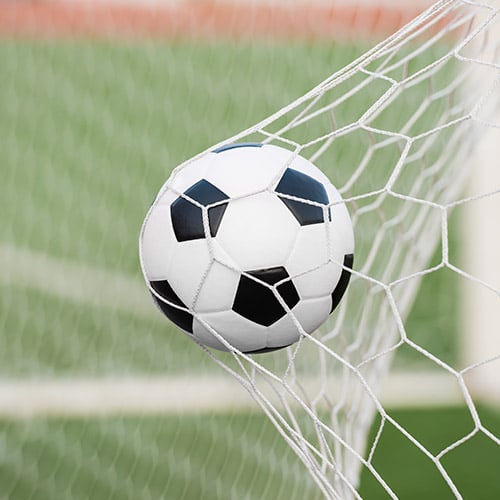Nowadays, it’s rare to not own a smartphone. Nearly everyone you know has one, and that’s no exaggeration: 86% of the world's population own a smartphone! It’s not surprising that they have been integrated into our daily lives. And while it’s an incredibly useful piece of technology, it does not come without its disadvantages.
Many studies have addressed the impact mobile phone use has in different settings such as education, but what about in sports? Is it true that using your mobile phone, even for just half an hour, could impact your athletes’ performance? And if so, why?
We took some interest to the topic in the InnerDrive sport psychology team so we got to researching. Here’s what we found…
Sports and mental fatigue
Have you ever felt drained? Like you’re so physically and mentally tired you can’t perform at your best? Well, chances are you were mentally fatigued.
We all experience mental fatigue in our daily lives. However, the impact that it can have on your athletes could be detrimental to their performance. A few negative effects of mental fatigue include:
- Decrease in decision-making
- Decrease in technique
- Decrease in motivation
- Increase in rate of perceived effort and exertion
But what does this have to do with mobile phones? Let’s find out…
Prolonged mobile phone use and athlete performance
Research shows that prolonged mobile phone use can negatively affect athletes’ performance. This is because it can reduce sleep efficiency, which in turn can make athletes more physically and mentally fatigued. This doesn’t just weaken performance but can also increase the risk of injury, because fatigued athletes experience a decrease in technique in energy absorption by their muscles, making injury more likely.
Prolonged mobile phone use can also be detrimental to athletes who participate in target sports as it can damage their eyesight. Constant use of a mobile phone (especially in the dark) can cause strained eyes. This makes target focus harder for your athletes and ultimately decreases performance.
Should athletes be allowed on social media before performing?
One reason we love to use our phones is because of social networking. A little message on WhatsApp, a post on Instagram or a status update on Facebook keeps us glued to our phones for hours. However, it doesn’t take hours for phones to decrease your athletes’ performance – ir only takes minutes. 30 of them, to be precise.
Research shows that athletes who looked at social media for at least 30 minutes before a football match were more likely to perform poorly. This is because these apps increased their mental fatigue levels, which compromised their decision making and decreased their passing abilities.
Further research also found that this is most true for athletes who perform for longer than a minute. This is because mental fatigue impairs high-intensity tasks with durations over 60 seconds as an athlete’s rate of perceived exertion increases. This in turn reduces the speed and intensity of an athlete’s actions, which reduces their performance.
Are phones always bad for your athletes?
Although there is a lack of research around the subject, mobile phones may not always be terrible for athletic performance. Whilst some athletes may spend half an hour scrolling on Instagram before an event, this is not the case for all.
Many athletes use their phones to benefit and enhance their performance. For example, they may have written their game plan on their notes page, meaning they read through it before a match to familiarise themselves. Or maybe they listen to upbeat music to get them into the right mindset before competing.
There are different reasons an athlete may use their phone before playing their sport. However, it is important that if they do use their phone, it’s for the right ones. Athletes need to develop their self-discipline and self-control, so their phone is not a distraction but a key to better performance. If it’s too hard for them to not wander off to social media when using their phone before a competition or match, maybe they shouldn’t be using it.
Final thoughts
Smartphones aren’t as harmless to athletes as they may first seem. Getting on social media for just half an hour could have a drastic effect on an athlete’s performance and decrease successful decision making and motivation.
Although social media is a great way for athletes to showcase their successes and achievements, it can also increase their mental fatigue, which can hinder their technique and decrease their motivation. This is why coaches need to be aware of how much time their athletes spend on social media before a competitive event. Many athletes may benefit from a “no phones before competitions” rule, as this eliminates the temptation to check social media before competing. An alternative option is to download an app that denies their access to social media for a certain amount of time.
Whilst research shows that social media can raise mental fatigue, it’s important to remember that not all athletes will use their phones for this reason. Some may store their notes or game plan on their phone as it’s easy to access and can be viewed at any time. However, athletes using their phones for this reason need to have high levels of self-control, so they are not tempted to drift onto social media.





